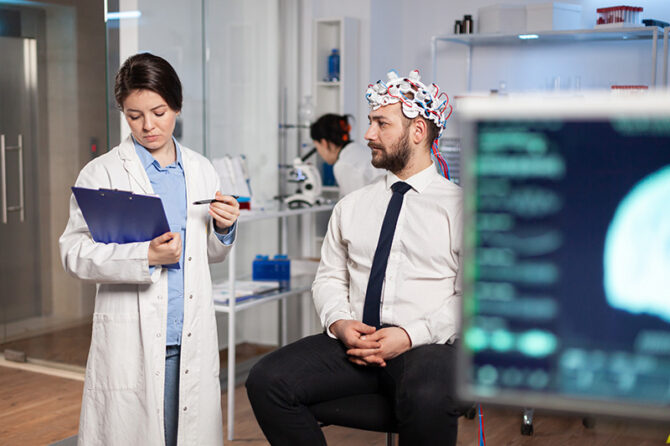
The integration of Artificial Intelligence (AI) into the medical science field represents a pivotal moment in healthcare, offering a pathway either toward unprecedented growth and innovation or toward challenges marked by job displacement and economic uncertainties. This juncture requires a thoughtful navigation of AI’s capabilities to amplify the collective potential of the healthcare sector without undermining human contributions. The emergence of AI in medical science holds the transformative promise of redefining patient care, enhancing diagnostic accuracy, and streamlining healthcare operations. Yet, it also necessitates a balanced approach to ensure AI’s role as a complementary force to human expertise rather than a substitute.
The deployment of AI in healthcare introduces a dynamic similar to other sectors, where the integration of new technology can either displace existing roles or enrich the ecosystem by creating new opportunities and enhancing productivity. For example, AI-driven diagnostic tools can outpace human accuracy in certain conditions but should augment rather than replace the nuanced judgment of healthcare professionals. This balance ensures that the introduction of AI contributes to an overall increase in the healthcare ecosystem’s value, enhancing the Return on Investment (ROI) in human capital by enabling professionals to focus on higher-level tasks and decision-making processes.
The potential paths for AI integration into healthcare reflect broader economic and social choices. The first path, marked by displacement and contraction, sees AI as a replacement for human roles, leading to potential job losses and undermining the value of human-driven innovation and empathy in patient care. Conversely, the enriching path views AI as a catalyst for growth, where technology enhances human capabilities, leading to an era of improved healthcare outcomes, personalized medicine, and operational efficiency. This approach emphasizes the importance of upskilling and integrating AI in a manner that respects and leverages the unique strengths of human intelligence.
Strategic integration of AI into healthcare demands a nuanced understanding of its capabilities, tailored to address specific challenges and opportunities within the sector. It involves recognizing that no single AI model can address the complex needs of healthcare, highlighting the need for a multifaceted approach that combines AI’s analytical prowess with human expertise. For instance, AI models can predict patient risks and assist in early diagnosis, but healthcare professionals provide essential context, empathy, and judgment in treatment planning.
Understanding AI biases and orientations is critical in the healthcare context, as model biases can influence decision-making in patient care. These biases, stemming from the training data and inherent model limitations, necessitate a cautious and informed approach to AI deployment. For healthcare, this means ensuring AI systems are transparent, explainable, and complemented by professional oversight to mitigate risks and ensure equitable patient outcomes.
The differentiation in AI capabilities, such as web-data and social-data-based models, offers valuable insights for healthcare. Web data models can analyse vast amounts of medical literature and patient data to identify trends and support research, while social data models can capture patient experiences and sentiments, offering a broader perspective on healthcare needs and expectations. By strategically selecting and combining these models, healthcare professionals can enhance diagnostic accuracy, personalize treatment plans, and improve patient engagement.
However, the evolving landscape of AI in healthcare also poses challenges, including ethical considerations, data privacy, and the need for robust regulatory frameworks to ensure patient safety and trust. The continuous advancement of AI technologies promises further innovations in medical science, from drug discovery to telemedicine, but also necessitates ongoing dialogue and collaboration among stakeholders to navigate the ethical and practical implications of these tools in patient care.
To wrap-up, the strategic integration of AI into the medical science field represents a significant opportunity to enhance healthcare delivery, improve patient outcomes, and drive innovation. By carefully navigating the potential paths of AI deployment, prioritizing ethical considerations, and fostering a complementary relationship between technology and human expertise, the healthcare sector can harness AI’s transformative power to create a more efficient, effective, and empathetic healthcare system. The decisions made today in integrating AI into healthcare will shape the future of medical science, offering a blueprint for leveraging technology to enrich human health and well-being.
Prof. Dr. Prahlada N. B
19 March 2024
Chitradurga.

















Prahlada Sir 🌹,
"Collaboration, Not Replacement"……..
AI doctors should complement human doctors, not replace them. Their role should be to assist, enhance, and accelerate the decision-making process, while human doctors continue to provide the vital aspects of care and empathy.
Patients often seek not just a diagnosis or treatment but also empathy, understanding, and emotional support from their healthcare providers. The human touch involves qualities like compassion, empathy, communication, and personal connection that are essential for building trust and providing holistic care.
Healthcare professionals should strive to integrate AI and technology into their practice while maintaining a focus on personalized, patient-centered care. By combining the analytical power of AI with the compassion and empathy of human caregivers, healthcare providers can deliver more effective and comprehensive care that addresses both the physical and emotional needs of patients.
Ultimately, finding the right balance between AI and the human touch in healthcare is key to providing high-quality, individualized care that leverages the benefits of technology while preserving the essential human aspects of healing and wellness.
Reply